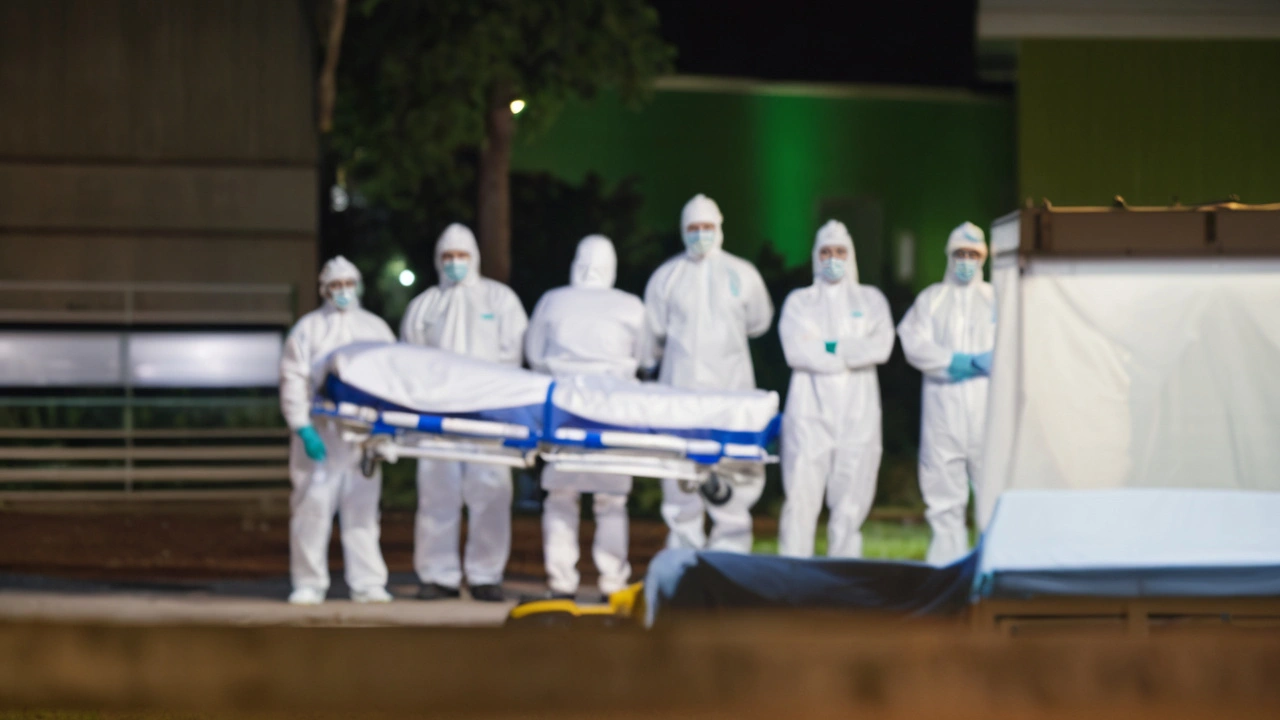- Deadpool & Wolverine: A Cinematic Goldmine with Explosive On-Screen Chemistry Jul 27, 2024
- UK’s MARS Drone Boat Breaks Cover: The Fast-Tracked Revolution in Naval Warfare May 7, 2025
- Sergio Busquets Retirement: Barcelona Legend Ends Career with Inter Miami Sep 27, 2025
- Arsenal's Final Showdown Against Everton Could Decide Premier League Title May 19, 2024
- Argentina edges Colombia 1-0 to book final spot at U‑20 World Cup Oct 20, 2025
Nipah Virus: What You Need to Know
Nipah virus is rare but serious. Outbreaks have happened in Malaysia, Bangladesh and India, and the virus can kill a large share of infected people — case fatality rates have ranged from about 40% to 75% in past outbreaks. That makes quick recognition and simple prevention steps worth knowing.
How Nipah spreads
Fruit bats (Pteropus species) are the usual animal reservoir. The virus can move from bats to animals (like pigs) and then to people, or directly from bats to people through contaminated food. In some outbreaks, human-to-human spread happened through close contact with sick people or their bodily fluids. Healthcare settings are higher risk if proper infection control is not used.
Typical incubation is 4–14 days, though it can be longer in some cases. Early symptoms often look like the flu — fever, headache, muscle aches, and sore throat. Respiratory symptoms (cough, difficulty breathing) may appear early, and in severe cases the virus can cause brain inflammation (encephalitis), confusion, drowsiness, or coma.
Signs to watch for
Watch for sudden fever plus any of these: severe headache, dizziness, vomiting, cough, breathing problems, or changes in behaviour or consciousness. If someone you’ve been close to develops these after travel to an affected area or contact with bats or sick animals, treat it seriously and seek medical advice quickly.
Diagnosis requires lab tests (PCR or antibody tests) done by reference labs. If you suspect Nipah, health services will isolate the patient and test to confirm. Early detection helps protect others and guides treatment.
There’s no specific, widely approved antiviral for Nipah yet. Care is mostly supportive — fluids, breathing support, and treating complications. Some drugs and vaccines are in research or trial stages, but they are not widely available for routine use.
Prevention is simple and effective. Don’t drink raw date palm sap or other foods likely contaminated by bats. Avoid handling sick animals and use gloves and masks if you must care for anyone unwell. In healthcare settings, staff should use standard infection-control measures: gloves, gowns, masks, and eye protection when dealing with suspected cases.
If you or someone close to you has worrying symptoms after travel to a known outbreak area, call local health services before visiting a clinic so they can prepare. Limit contact with others, avoid caring for the person without protection, and follow public health advice about testing and isolation.
Outbreaks are still uncommon, but when they happen they demand fast action. Keep an eye on trusted sources and follow local health alerts. If you want updates and practical alerts about Nipah and other health risks in Africa and beyond, follow this tag on African EduNews Tree.
Kerala Teen Dies After Consuming Local Fruit, Linked to Nipah Virus
- Katlego Sean Mahaye
- Jul 22, 2024
A 14-year-old boy in Malappuram, Kerala, succumbed to the Nipah virus after eating hog plum fruit from his neighbourhood, an area where fruit bats are commonly found. The incident has sparked an investigation by the National Virology Institute and prompted the health department to take measures to control the outbreak, including establishing a control room and advising residents to wear masks.
